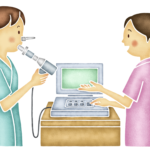The brain is a vital part of the human body. It is the center that controls and coordinates all the thoughts, memory, emotions, and functions of the body. Keeping it functioning well and protecting it from neurological disorders is important. Health was defined by WHO in the year 1948 as “a state of complete physical, mental, and social well-being and not merely the absence of disease or infirmity”. To attain this, brain health should be the main priority of people. A healthy brain is defined as the state in which an individual is capable of realizing his own abilities to cope with situations in life and is able to optimize their cognitive, emotional, psychological, and behavioral functioning accordingly. Nowadays, this term is expanding further and includes concepts of neural development, plasticity, functioning, and recovery throughout life. Research published in BMC Public Health in 2018(Velten et al.), suggested that healthy lifestyle choices such as regular physical exercise, good diet, social interactions, etc. contributed to the improvement of mental health.
The following measures should be taken to take care of brain health:
- Regular physical activity :
Multiple research suggests the importance of exercise for our brain. Physical activity in any form such as walking to work, taking the stairs, engaging in sports, brisk walking, strength training, aerobic training, etc. is helpful in keeping our brain in shape. A study performed by Coelho et al, published in 2012 concluded that moderate-intensity physical exercises effectively increase the levels of brain-derived neurotrophic factor(BDNF), which is a protein involved in the maintenance and growth of neurons in the brain of the elderly. A 4 months-long study by Colcombe et al. compared the effect of aerobic and non-aerobic exercises on the brain. It suggested a significant increase in the amount of gray and white matter in the brain regions which suffer from age-related damage with respect to structure and cognition in elders who underwent aerobic exercise training.
- Sufficient sleep:
A good quality sleep of 7 to 8 hours is essential for maintaining good brain health for adults and it maintains the attention-based and executive functions of the brain. According to the AARP Sleep and Brain Health Survey conducted in 2016, 44% of adults 50 years of age or older rated their quality of sleep as extremely good or very good; 84% said they were mostly well-rested in the morning, but only 33% reported being very satisfied with the amount of sleep they got daily.
Factors affecting normal sleep :
The shift in normal sleep pattern
Insufficient exposure to sunlight
Medication for the treatment of chronic diseases
- Diet
A diet containing the following food items is recommended to enhance brain health:
- Vegetables – especially green, yellow and orange vegetables decrease risk of disease occurrence.
- Fruits
- Plant proteins
- Whole grains
- Fish
- Poultry
- Legumes
- Low sodium intake
- Low-fat and non-fat dairy products
- Polyunsaturated fatty acids(like omega 3 fatty acids) – Docosahexaenoic acid (DHA) is the most prevalent in the brain. This omega 3 fatty acid plays a role in maintaining plasticity of the neuronal membrane. Fish, walnuts, olives, canola, flaxseed, soybeans and sunflower seeds are a good source of PUFA.
- Caffeine and cocoa flavonoids – these contain antioxidants, which have a positive impact on brain health. Tea and coffee immediately increase mind alertness and dark chocolate is well known for cognitive enhancement.
Such a healthy diet reduces the risk of neurodegeneration, increases cognitive functioning, decreases hypertension and the risk of cardiovascular diseases.
Food items that one should avoid:
- Red meat
- Refined grains
- Sweets
- Trans-unsaturated fatty acids – It is mainly found in processed, fried and baked foods. Trans fats increase the levels of low density lipoprotein(LDL) and decrease levels of high density lipoproteins(HDL), thereby increasing the risk of heart disease, stroke, and type two diabetes. All these conditions affect brain health adversely.
- Tobacco
- Alcohol
- Mental activity :
Our brain is a muscle. Hence, regular exercise is important for it to be healthy. Cognitively stimulating activities such as mind-teaser games(sudoku, puzzles), educational activities(learning a new language, a new instrument), intellectual inquiries, and mental challenges are very helpful. They mentally engage an individual and prompt them to think and process information. This helps in preserving the cognitive reserves and tends to decrease the incidence of age-related disorders of the brain.
- Social involvement:
Human beings are social beings. Positive interaction with people and surroundings is good nutrition for our brain. In a study published in Cerebrum(2011) by Michelle C Carlson, known as The Experienced Corps Trial, the elderly population was engaged in local schools to promote purpose-driven involvement. The participants exhibited immediate short-term gains in the brain regions that are vulnerable to aging. Strong social bonds are great for boosting mental health. Loneliness is the gap between the level of social engagement a person actually has and the level that he wants. It may lead to mental and social disorders. There are various ways to tackle it, for example, meeting more people, investing in human-animal relationships (keeping pets, volunteering for animals, etc.), taking up a hobby that demands interaction with many people, etc.
- Emotional stability:
Stress, especially for a prolonged period, leads to an increase in the levels of cortisol. This hormone has a long-term negative effect on the brain and might cause inflammation which gives rise to reactive oxygen species(ROS), thereby damaging neurons.
Regular meditation(even for 5-10 minutes) helps us to deal with anxiety, depression, fatigue, stress, and inflammation, making us emotionally strong and stable.
- Digital detox:
Keeping all electronic devices away 30-60 minutes before going to sleep is a good way to maintain a good quality of sleep and brain health.
- Take care of your overall health:
Our brain and body are dependent on each other. Maintaining good physical health is important for a healthy brain. The following need to be taken care of:
- Cardiovascular system – Conditions like high blood pressure, cholesterol, increased heart rate, etc. are extremely stressful for our brain and tend to increase the risk of dementia, Alzheimer’s etc.
- Blood sugar – Diabetes and high blood sugar(without diabetes) make an individual susceptible to dementia. Therefore, it is advised to limit our intake of high sugar diets.
- Weight – Obesity is associated with decline in cognitive abilities. A study was conducted by Lehtisalo et al. for 4 years and published in J Nutr Health Aging(2016). It involved an active phase intervention and 9 years of follow up and suggested that high BMI and waist circumference may lead to cognitive decline. Leading a physically active lifestyle and decreasing the total intake of fats(especially saturated fats) help in maintaining a healthy mind and body.
- Protection of brain:
One should be careful and avoid all sorts of head injuries be it from sports, while driving, etc. The formation of concussions damages the brain in the long as well as short term. Therefore, one should wear a helmet while riding a bike, avoid drinking and driving and take other necessary precautions to protect our head from any physical damage.
Conclusion:
Hence, we conclude that our brain and body need to function in sync just like the wheels of a cycle, efficiently to lead a normal and healthy life. There are various biological and social factors that determine the development of the brain and its function. This begins prenatally and continues throughout life. Regular exercise, meditation, mental activity, good quality sleep, the right food, and taking good care of health are measures that one can take to nourish their brain and live a healthy life.
To seek help or know more about brain health, you can visit the Neurology and Sleep Centre, the 1st sleep centre in the country accredited by the Indian Board of Sleep Medicine at L-23, Hauz Khas Enclave, New Delhi, Delhi-110016 (INDIA)
Or give a call on +91-11-46070321, +91-9643500270
References:
Carlson M. C. (2011). Promoting healthy, meaningful aging through social involvement: building an experienced corps. Cerebrum: the Dana forum on brain science, 2011, 10.
Coelho, F. G., Gobbi, S., Andreatto, C. A., Corazza, D. I., Pedroso, R. V., & Santos-Galduróz, R. F. (2013). Physical exercise modulates peripheral levels of brain-derived neurotrophic factor (BDNF): a systematic review of experimental studies in the elderly. Archives of gerontology and geriatrics, 56(1), 10–15. https://doi.org/10.1016/j.archger.2012.06.003
Colcombe, S. J., Kramer, A. F., Erickson, K. I., Scalf, P., McAuley, E., Cohen, N. J., Webb, A., Jerome, G. J., Marquez, D. X., & Elavsky, S. (2004). Cardiovascular fitness, cortical plasticity, and aging. Proceedings of the National Academy of Sciences of the United States of America, 101(9), 3316–3321. https://doi.org/10.1073/pnas.0400266101
Velten, J., Bieda, A., Scholten, S., Wannemüller, A., & Margraf, J. (2018). Lifestyle choices and mental health: a longitudinal survey with German and Chinese students. BMC Public Health, 18(1), 1-15.











